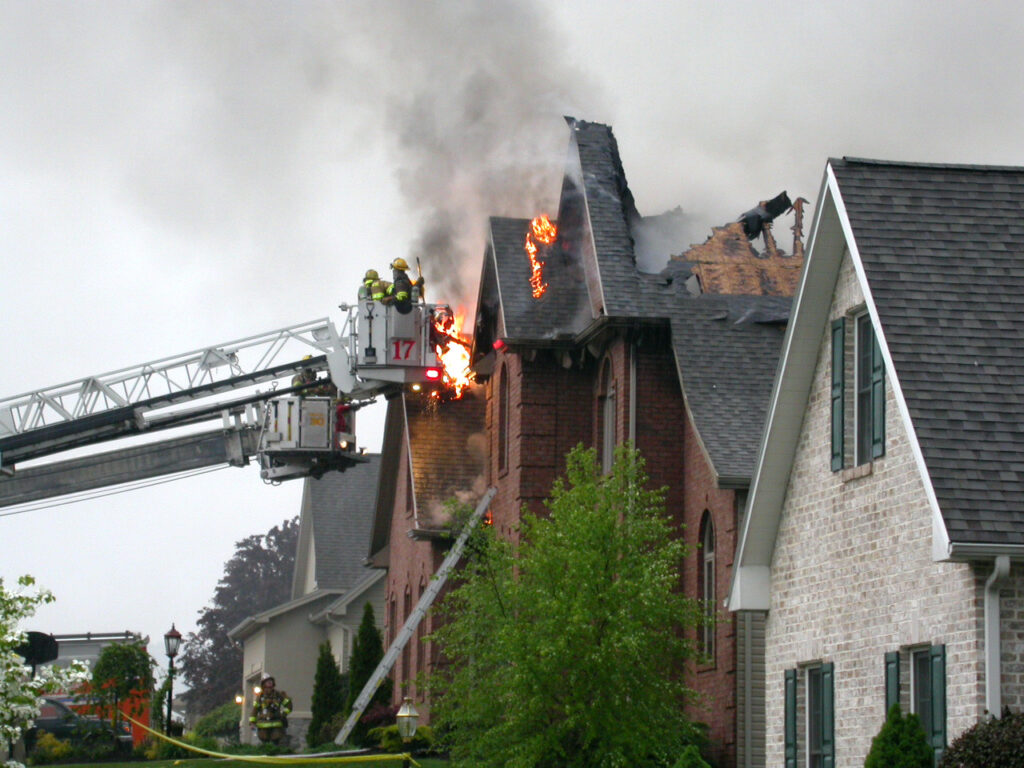If your home contains asbestos, you’re not alone. It’s found in thousands of properties across the UK — particularly those built before 2000. But when it comes time to sell (especially quickly), one question looms large:
Do you have to tell potential buyers about asbestos in your home?
Short answer: Yes. If you know asbestos is present, UK law requires you to declare it. And failing to do so can derail your sale, land you in legal hot water, and even put other people’s health at risk.
Here’s everything you need to know about the legal, practical, and strategic side of asbestos disclosure.
What is Asbestos And Where Is It Usually Found?
Asbestos is a hazardous building material once prized for its insulation and fire-resistant properties. It was used extensively in UK construction until its full ban in 1999.
Common Asbestos Hotspots in UK Homes:
- Artex ceilings and textured coatings
- Pipe and boiler insulation
- Soffits, garage roofs, and guttering
- Floor tiles and adhesive underlay
- Cement roofing sheets and roof felt
These are often hidden in plain sight — and harmless when undisturbed. But if damaged, they become dangerous.
Why it matters: Asbestos exposure is linked to serious illnesses including:

- Mesothelioma
- Lung cancer
- Asbestosis
Which is why the government classifies it as a hazardous material — and treats disclosure as a serious legal obligation.
What the Law Says: Your Legal Duty to Disclose
If you’re selling a property and you know it contains asbestos, here’s what you need to know.
Key Legal Obligations:
- Consumer Protection from Unfair Trading Regulations 2008
- You must not omit or hide material facts that could impact a buyer’s decision.
- Asbestos is definitely a material fact.
- The Misrepresentation Act 1967
- If you give false information (or omit key details), the buyer can take legal action.
- TA6 Property Information Form
- This standard form is completed during the conveyancing process.
- It directly asks: Are you aware of the presence of asbestos?
Important: If you knowingly conceal or lie about asbestos, and the buyer finds out after the sale, you could be sued for misrepresentation or face the sale being reversed.
Even estate agents are legally obliged to disclose material facts under the same regulations.
The TA6 Property Information Form: Your Key Disclosure Tool
One of the most important parts of any UK property sale is the TA6 form. This form is your formal chance to disclose known issues — including asbestos.
How the TA6 Works:
- Completed by the seller.
- Required during conveyancing.
- Contains a section on Environmental Matters.
- Directly asks about the presence, history, or removal of asbestos.
Top tip: If you’ve had a survey or asbestos removal done, it’s a good idea to include the documentation when returning the TA6.
What Happens If You Lie (Or Leave It Blank)?
If you mislead the buyer — or deliberately omit asbestos info — they can:
- Pull out of the sale.
- Renegotiate for a lower price.
- Take legal action after completion (including compensation claims).
Bottom line? The form is a legal document. It protects both parties, and keeps your sale on track.
Why Being Honest About Asbestos Is a Smart Move
Even if the law didn’t require it, honesty is still the best policy when selling a home with asbestos.
Build Trust, Not Barriers
Buyers aren’t automatically scared off by asbestos — especially in older homes. But what will scare them off is discovering it after they’ve signed.
By being transparent:
- You show integrity.
- You reduce the chance of late-stage dropouts.
- You protect yourself from legal fallout.
Keep Future Occupants Safe
Declaring asbestos isn’t just about ticking legal boxes — it’s about health and safety. Especially if your buyer plans to renovate (which could disturb asbestos materials).
Giving them a heads-up lets them manage it safely, hire specialists if needed, and budget for any removal work.
Does Asbestos Make a Home Unsellable?
In a word: No.
Asbestos Disclosure ≠ Dealbreaker
- You are legally allowed to sell a house with asbestos.
- You just need to disclose it if you’re aware of it.
- Many buyers — especially seasoned ones — expect it in older properties.
What Might Be Affected:
- Valuation: If asbestos is widespread or poorly managed, it can reduce your home’s market value slightly.
- Mortgage Approval: Some lenders may request an asbestos survey before lending — especially if the buyer flags concerns.
- Buyer Confidence: If asbestos is sealed, documented, and well-managed, it’s usually a non-issue.
Pro tip: Getting a pre-sale asbestos survey can show buyers you’re proactive and transparent. That alone can boost trust.
What If You’re Not Sure Whether There’s Asbestos?
Not everyone knows what’s lurking in their ceilings or behind their walls — especially if you’ve lived in the property for years and never renovated.
Are You Legally Required to Get a Survey?
No. You’re not legally obliged to commission an asbestos survey before selling.
If you genuinely don’t know, you can tick “Not Known” on the TA6 form.
But if you suspect it might be present — due to the age of the home or past surveyor remarks — the safer move is to investigate.
Benefits of an Asbestos Survey Before Selling:
- Shows you’re acting in good faith
- Prevents surprises during the buyer’s own survey
- Lets you provide accurate disclosures
- Helps you or the buyer budget for potential removal or encapsulation
- Prevents wasting times and sale from collapsing
Remember: Many homes built before 2000 contain some form of asbestos. If your property falls into this category, it’s worth considering a survey — especially if you want a smooth, fuss-free sale.
What to Do If Asbestos Is Present
So you’ve had a survey — and yep, there’s asbestos. Now what?
Your Options as a Seller:
- Disclose it on the TA6 form.
- Include any previous reports or removal certificates.
- Highlight if it’s been managed.
- If asbestos has been sealed, encapsulated, or declared safe in place — say so.
- Consider removal — but only if needed.
- If the material is damaged or friable, you might want to pay for removal.
- Just be sure to use a licensed asbestos contractor.
- Or… sell as-is.
- You’re not required to fix it — only to disclose it.
Selling a House Fast — Even With Asbestos
If you’re facing a time crunch, don’t want to deal with the paperwork, or simply want peace of mind, Property Rescue makes it easy.
Here’s why homeowners choose us when asbestos is part of the picture:
We Buy Any Property — Even With Asbestos
- Asbestos? No problem.
- We’ll assess the cost to remove it and then we’ll make you a cash offer with this cost factored in.
Fast, Fair Cash Offers
- No waiting around for mortgage approvals or surveys.
- Just a quick, no-obligation cash offer — usually within hours.
Zero Fees. Full Transparency.
- We cover all legal fees.
- You won’t pay a penny in agent commissions or EPCs.
- No hidden charges. Ever.
Speed and Certainty You Can Rely On
- We’ve bought thousands of properties with asbestos since we started operating 20 years ago. We’d be delighted to buy yours too, and we can do it quickly.
- Our team handles the paperwork, the legal bits, and keeps things stress-free.
Real Support, Real Results
- 5-star rated on Trustpilot
- FCA-regulated
- Proud member of The Property Ombudsman and National Association of Property Buyers
Selling a house with asbestos doesn’t have to be stressful. We’ll carry you every step of the way.
Move on without the hassle — and sell your house in days, not months.





